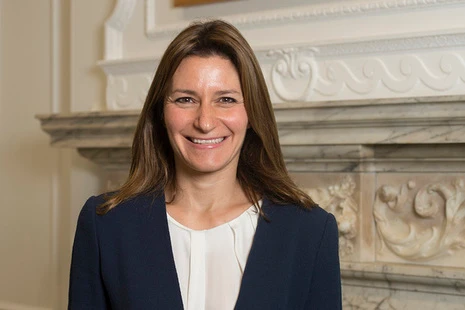White paper pledges increased protections for vulnerable groups

Most of these terms were largely speculated to be part of the Gambling Act review white paper, which has been released today (27 April) after years of delays and setbacks.
Following the white paper’s publication, Frazer said that DCMS would “force” operators to step up affordability checks on customers.
“We are going to force companies to step up their checks on when losses are likely to be unaffordable and harmful for punters,” said Frazer. “Companies already have to intervene when they know a customer is spending vast sums. But this change will better protect those least able to afford even small losses.”
These checks will also apply to online slots games, to have them be “more in line with bricks and mortar equivalents”. Frazer confirmed that a stake limit on online slots is included in the white paper, with players only able to stake between £2 and £15.
Protections for vulnerable groups
VIP schemes will also be more tighly regulated under the new legislation. Frazer said that this was due to the temptation they hold for those suffering with problem gambling behaviours.
“We know many addicts find each time they break free from the temptation to gamble, they are drawn back into the orbit of online companies with the offer of a free bet or some free spins,” she said.
“So to help stop problem gamblers being bombarded, the Gambling Commission has beefed up its rules on online VIP schemes – already resulting in a 90% reduction in these schemes – and it will now consult on making sure bonus offers are not being deployed in ways which only exacerbate harm.”
In her third point, Frazer continued to focus on the Gambling Commission, stating that DCMS will ensure the regulator has the “appropriate resources” needed to ensure vulnerable individuals are protected from gambling harms.
As part of this, Frazer confirmed that there is a new mandatory statutory levy in the white paper, to “turn the tables on problem gambling”.
“No one should be denied an innocent flutter, but the public should not have to bear the cost of treatment when a punter becomes an addict,” she explained.
Frazer hailed the mandatory statutory levy as “one of the most important changes” to the 2005 Gambling Act.
Ensuring balance between players and operators
Frazer said that the appointment of a non-statutory ombudsman would amend the “power imbalance” between players and operators by giving customers a “single point of contact”.
She said that DCMS would work with the Commission and the industry to create the ombudsman contact.
Frazer also spoke about the need to protect children. She gave her support to the Premier League’s ban on front-of-shirt sponsorships, which was announced earlier this month.
“Gambling is an adult activity and it must remain an adult activity,” she said. “That is a major reason why I applauded the decision taken by the Premier League to remove gambling sponsorships from their shirt fronts in the coming seasons.
“And it is the same reason we are ensuring children can do no forms of gambling either online or on widely accessible scratchcards.”
Land-based gambling in the white paper
Her final point centred on how the white paper would address the land-based industry. Frazer said that casinos, bingo halls and other land-based gambling locations had been “disadvantaged” by the current “status quo”, adding that the 2005 Gambling Act was now outdated when it came to land-based venues.
“A number of assumptions which prevailed at the time of the 2005 Act now look increasingly outdated, so we plan to rebalance regulation and remove restrictions which disadvantage the land-based sector.”
Contrasting reactions in parliament
Carolyn Harris, chair of the gambling related harms All-Party Parliamentary Group (APPG) welcomed what she described as a long overdue white paper.
She pointed out that it delivered on many of the measures the APPG called for in its 2020 blueprint for reform. That proposed affordability checks, parity for land and online stake limits, an independent ombudsman and the implementation of a levy for research, education and treatment.
However, Harris criticised further consultation on implementing many of the white paper’s measures.
“Today is a momentous occasion that many thought and many wished would never happen,” she said. “But now the commitments need to be fulfilled. We don’t need more consultation. We’ve had two and a half years since the review.
“We need swift action, immediate implementation of the proposals and urgent legislative change where it is necessary after 18 years of the gambling industry’s dominance over this agenda.”
“Light on substance”
Meanwhile, while Labour shadow DCMS minister Alex Davis-Jones said she welcomed the white paper, she criticised Frazer’s remarks for being “light on substance” as well as long overdue.
“The government has delayed this white paper many times,” she said. “Everything they’re announcing today was ready to go a year ago. Six gambling ministers, four culture secretaries all promised to publish this white paper imminently.”
Phillip Davies attacks white paper
The contents of Frazer’s statement were not universally welcomed by politicians in the chamber.
Fellow Tory Phillip Davis MP questioned “the number of regular punters” ministers spoke to prior to bringing forward the proposals on affordability checks.
In particular, he disputed the wisdom of setting the threshold for checks at losses of £2,000 in 90 days, which he said worked out to around £22 per day.
“The Conservative Party used to believe in individual freedom and individual responsibility, but that seems to have gone out of the window with these affordability check proposals,” he said.
